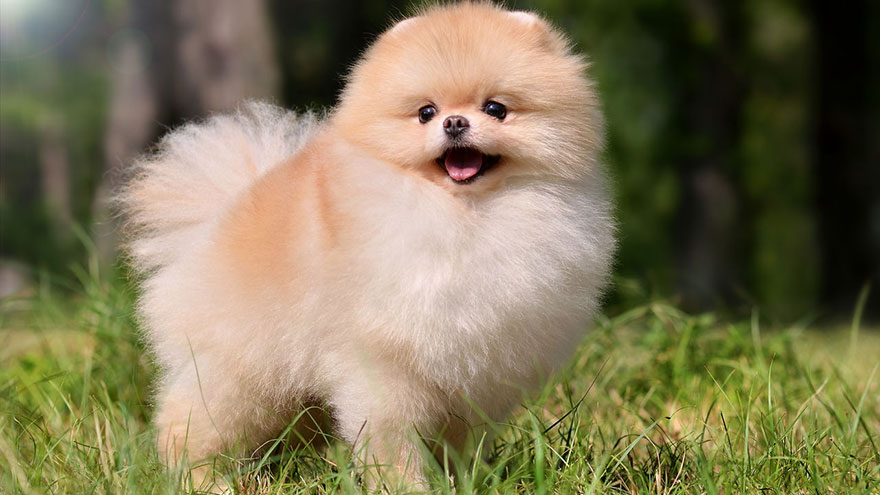Pomeranian : 10 Most Common Questions
The Pomeranian developed as a separate breed in the Pomerania region of Prussia (Poland and Germany). Pomeranians are descendants of the ancient Spitz type of dog from the north and some were brought to Europe to herd sheep.
This has become a very popular dog, and the small size makes the Pomeranian ideal for those with limited space in the home or apartment. The Pomeranian is a loyal and energetic breed and can be an excellent show dog because of its appearance.
We have put together 10 of the most common questions about this breed and provided answers for each.

1. Are Pomeranians difficult to live with?
Actually, they are generally good with children and other pets, but it may take some time for the new puppy to fit in. Early socialization with the breeder, during the first few weeks of the puppy’s life, can make a lot of difference.
The Pomeranian gets along fine with older children and may be an excellent companion for an elderly person. Be prepared for a dog that is somewhat temperamental, however.
2. What color is best for a Pomeranian?
The Pomeranian is recognized by the American Kennel Club in a variety of colors, from solid white, red, or cream to black-and-tan or white with colored markings.
3. What health problems should I look for?
Pomeranians may be prone to dislocated kneecap, sometimes known as luxating patella. You may want to watch for any eye and ear problems. Pomeranians can be subject to early tooth loss, so some dry food may be necessary to keep the teeth and gums in good shape.
4. How long does the Pomeranian live?
Most healthy Pomeranians will live up to 15 years with proper care and diet. They are actually a quite sturdy little dog, though they weigh only 4 to 7 pounds. Limited exercise will be OK for this breed.
5. How do I care for the wonderful coat?
Daily brushing is essential to keep the coat from matting. The Pomeranian is also a consistent shedder, so you may be cleaning up little bits of hair most days. Plan to do some occasional trimming as well.
Professional grooms often start at the head and brush back with a part, allowing the longer hair to fall naturally.
6. How should I start to look for a Pomeranian?
As with all purebred dogs, it is best to read as much as possible about this breed. Then locate and visit at least three top breeders. Be prepared to ask many questions and look closely at the living conditions for the dogs.
Ask about guarantees for replacement and ask about genetic health problems with the Pomeranian.
7. I have heard the Pomeranian has a double coat, what does this mean?
The breed does have a double layer coat. The undercoat is softer, fluffier, and dense. The outer coat has longer strands and is coarser, harsher in texture. A soft, flat coat is considered a fault, as are open spots or very thin spots.
8. I live in an apartment; will the Pomeranian be OK with this?
Yes, the Pomeranian should do well in an apartment. They will not need a lot of exercise, though you may want to take your pet for short walks on a light leash occasionally.
This is an active, energetic breed, so inside play is a good idea.
9. What is the best way to house train a Pomeranian?
This type of training can be a challenge with small dogs. We suggest trying crate training, to give the dog a “den” that it will naturally want to keep clean.
The key with the Pomeranian puppy is patience and consistency. Your Pomeranian will want to please you and is very intelligent. By working with this breed in a deliberate manner, you should be fine.
10. Do Pomeranians get along with other dogs?
Your new pet should be fine, as long as you take time to introduce the pets and give them time to get used to each other. Pomeranians are somewhat more aggressive toward larger dogs than size would allow, so do not expect the Pomeranian to back away from a larger pet.
If your breeder has properly socialized his young dogs and you take time to work with your pets, they should get along well.
Read More About Pomeranian
- Pomeranian Breed Information
- Pomeranian Training Guide
- Pomeranian Health Guide
- Owning a Pomeranian : Breeder Recommendations

